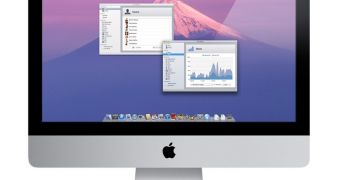Mac OS X 10.7, the latest version of Apple’s desktop operating system dubbed Lion, has dropped support for several elements that help make up the OS X experience today.
One of those is Rosetta, the dynamic translator that enables PowerPC applications to run on Intel hardware.
While Snow Leopard also shipped without Rosetta, users could easily install the tool themselves and run PowerPC applications afterwards.
This is not the case with Lion, as it completely drops support for Rosetta and, implicitly, code compiled for the PowerPC architecture.
Lion will also ship without a pre-installed Java runtime, which would enable the OS to execute 100% pure Java apps.
The primary reason for this is security. By doing away with Java runtime, a large number of potential vulnerabilities will not be listed in Apple’s semestral Security Updates.
For example, Security Update 001-2011 might contain fixes for emerging Java flaws that will apply to Leopard and Snow Leopard, but not for Lion.
Finally, Lion drops Front Row, the media center emulator built inside Mac OS X since 2005. Front Row stops at OS X 10.6 (Snow Leopard), but it is also available in OS X 10.4 (Tiger), and OS X 10.5 (Leopard).
Mac OS X 10.7 Lion is touted as a hybrid OS which borrows best-of-breed features from the former Mac OS X iterations, and key elements that make up the iPad version of Apple’s iOS.
A more touch-oriented OS than all those before it, Lion adds tons of input options that heavily rely on the Multi-Touch trackpad found on Apple’s MacBooks, and the Magic Trackpad itself, for desktop systems.
Bundled in the shipping version of Lion this summer will also be the Server version of the OS, which will present itself as an option during the initial setup process.
Lion is currently distributed among tight developer circles as a Mac App Store download, though the final shipping version will undoubtedly be available as a retail purchase as well.

 14 DAY TRIAL //
14 DAY TRIAL //